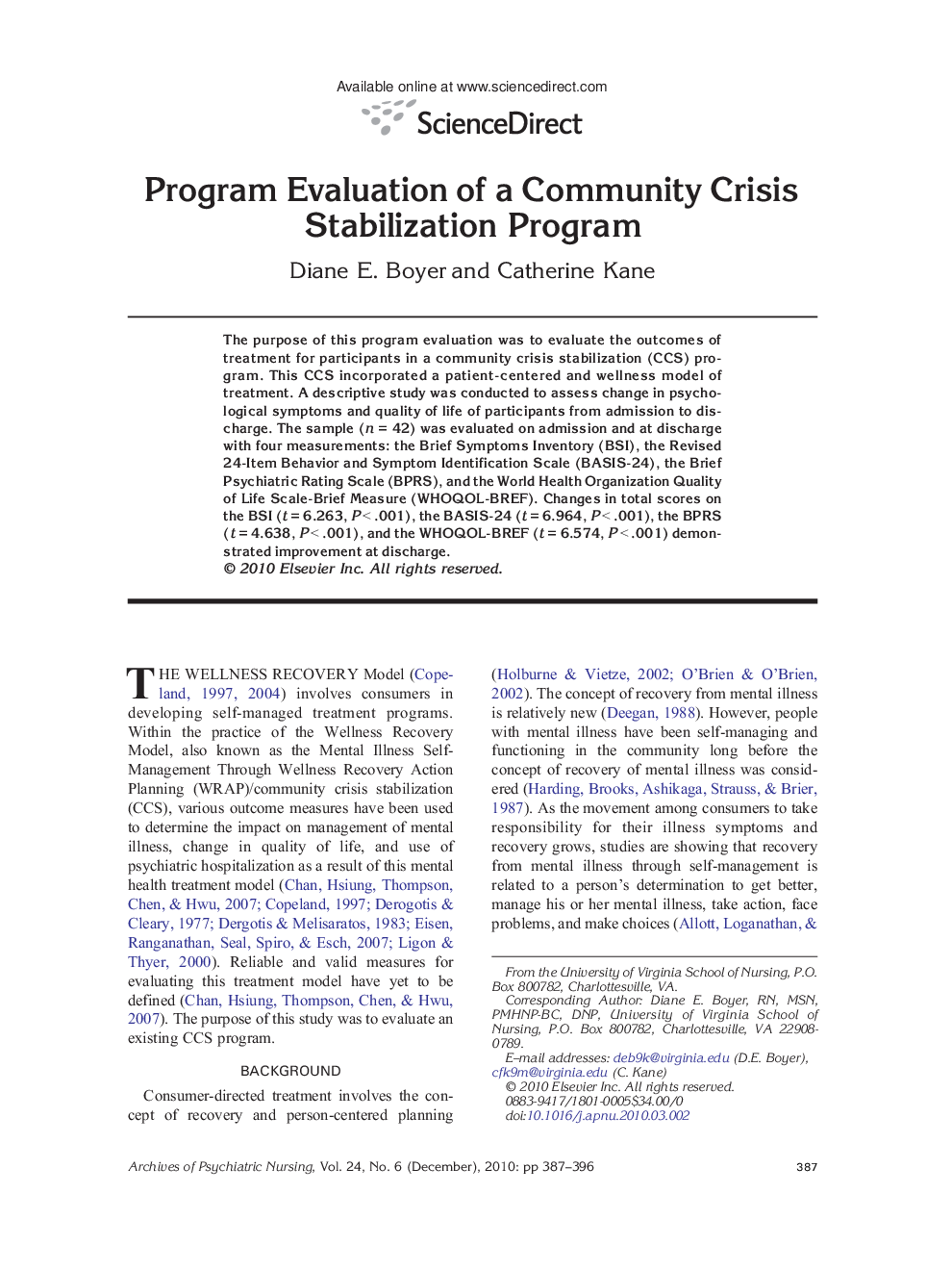| Article ID | Journal | Published Year | Pages | File Type |
|---|---|---|---|---|
| 316368 | Archives of Psychiatric Nursing | 2010 | 10 Pages |
The purpose of this program evaluation was to evaluate the outcomes of treatment for participants in a community crisis stabilization (CCS) program. This CCS incorporated a patient-centered and wellness model of treatment. A descriptive study was conducted to assess change in psychological symptoms and quality of life of participants from admission to discharge. The sample (n = 42) was evaluated on admission and at discharge with four measurements: the Brief Symptoms Inventory (BSI), the Revised 24-Item Behavior and Symptom Identification Scale (BASIS-24), the Brief Psychiatric Rating Scale (BPRS), and the World Health Organization Quality of Life Scale-Brief Measure (WHOQOL-BREF). Changes in total scores on the BSI (t = 6.263, P < .001), the BASIS-24 (t = 6.964, P < .001), the BPRS (t = 4.638, P < .001), and the WHOQOL-BREF (t = 6.574, P < .001) demonstrated improvement at discharge.
